You’ve recently noticed your cat isn’t pooping. No matter the length of time you spend outside on your walks, she just doesn’t want to go and do her business.
What do you need to do? Is your cat upset for some reason, or your cat won’t poop because something is wrong with her?
You can probably imagine that going without pooping for too long can have health risks for your cat. But how long is too long and what would be the normal pooping amount?
How Long Can Cats Go Without Pooping?
Constipation simply means your cat can’t poop on a regular basis as he should. A cat’s normal pooping schedule should be once or twice a day.
Constipation itself isn’t quite a medical emergency, though it can become one if ignored.
In some extreme cases, a cat’s poop becomes so hard, dry, and compacted it stays in the digestive tract because the cat simply can’t get rid of it. This is a condition called obstipation.
Obstipation is a more severe kind of constipation and is very serious. It’s usually related to a more severe, chronic medical condition your cat is suffering from and will eventually result in a refusal to eat.
How do you get rid of that?
At the point of obstipation, the cat usually can’t get rid of it herself. Your will require medical attention to have her colon evacuated.
What will it do to your cat if simply left there?
Cat poop is composed of a lot of bacteria, in addition to everything else. Eventually, some of that bacteria can become absorbed into the bloodstream, leading to sepsis (blood poisoning) and death if untreated.
Having nowhere to go, the cat poop will back up into the large intestine.
A cat can survive without pooping for longer, but it can become impossible for her to defecate (obstipation) on her own if he’s gone for two days or longer without pooping.
At that point (ideally before) he’ll need medical attention.
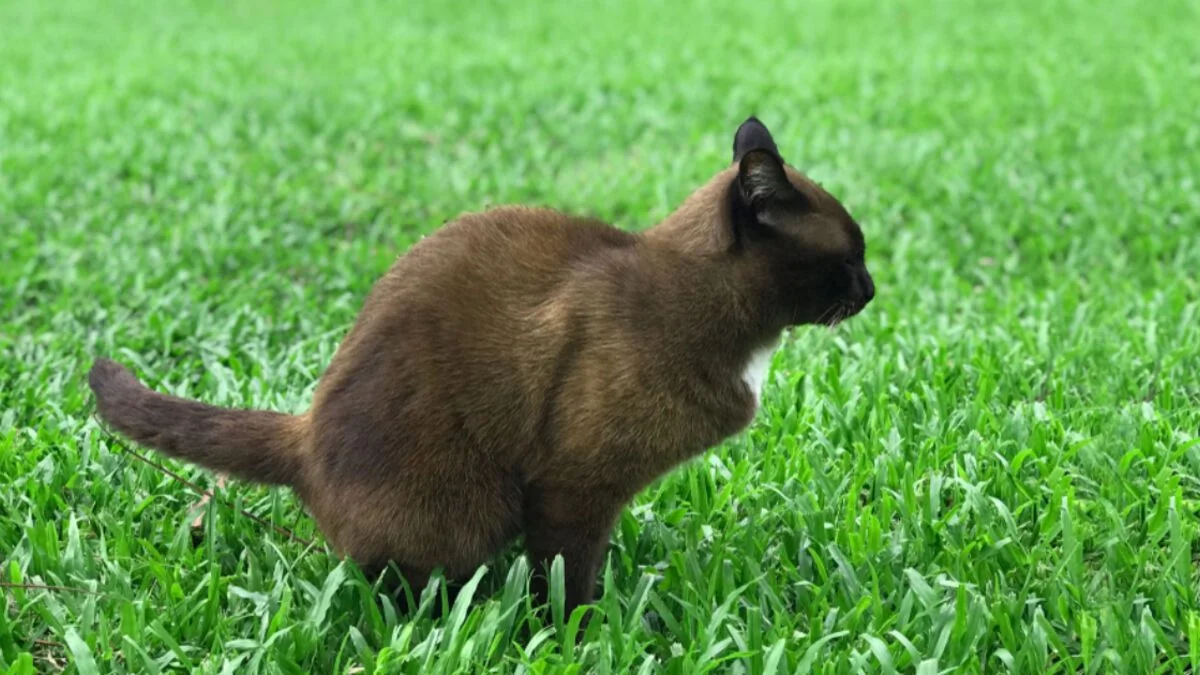
Is It Normal For A Cat To Not Poop For A Day?
One day without pooping isn’t a huge cause for concern. If your cat hasn’t pooped for a day, be sure to pay careful attention for her to poop the next day.
It isn’t exactly normal, but also not an overwhelming medical emergency. My cat goes one day without pooping several times a month.
While it’s not an emergency yet, it does mean something is happening down there that shouldn’t be.
Your veterinarian (if you bring your cat in) will want to know the problem causing it, and treatment will vary depending on what that cause is.
“A serious, though generally uncommon, consequence or cause of constipation in cats is megacolon. Megacolon refers to a dilated and weak colon that causes severe constipation.”
Ward, Ernest. DVM.
How Often Should A Cat Poop?
Pooping once or twice a day would be absolutely ideal.
The number of times a cat defecates a day will depend on her diet, among others, and should be consistent.
It doesn’t really matter if your cat poops once a day (in my case) or four times a day, as long as this schedule doesn’t change much.
Four times a day can seem a bit extreme, but this usually isn’t a problem. It becomes a problem when your pet won’t poop at all.
It all comes down to a cat pooping consistently and regularly. Ideally, if you feed them a nutritious diet with enough fiber, and your furry friend is eating the same amount he has been, your cat should poop on a regular basis.
In case your cat isn’t pooping regularly, make sure to schedule a vet visit as soon as possible.
How To Make Your Cat Poop Now
The most effective way to treat constipation is either with an enema, suppository, or some kind of laxative or stool softener, and both should be given under a veterinarian’s supervision.
The entire reason your cat isn’t doing her business is probably that the business is too hard in the first place.
A store-bought laxative should be medically prescribed because it can cause dehydration.
Intense diarrhea can be worse than constipation was. Human medications can be toxic, and should never be used unless advised by a veterinarian.
While it isn’t recommended to do this at home, even if you have gloves, your veterinarian might give your cat an enema.
Sometimes the feces will need to be manually broken down in a clinical setting.
An enema for animals usually involves liquid or gas being injected directly into the colon to break up, soften or expel the contents.
If your cat is only dealing with mild constipation that hasn’t become an emergency yet, there are many foods that aid the process.
The higher water and fiber content in canned pumpkin (not pie filler) will help soften your cat’s stool while simultaneously adding bulk (fiber), which is a great alternative.
In fact, the fiber in canned pumpkin is also fantastic for diarrhea.
Coconut Oil For Cat Constipation
Believe it or not, a small amount of coconut oil can be great for mild constipation. You can go with half a teaspoon for smaller breeds, while two teaspoons should work well for larger breeds.
Coconut oil for cat constipation offers a sort of natural laxative effect, while many say it helps enhance a cat’s metabolism, assisting in healthy digestion.
Coconut oil might even help improve blood-cholesterol in your cat.
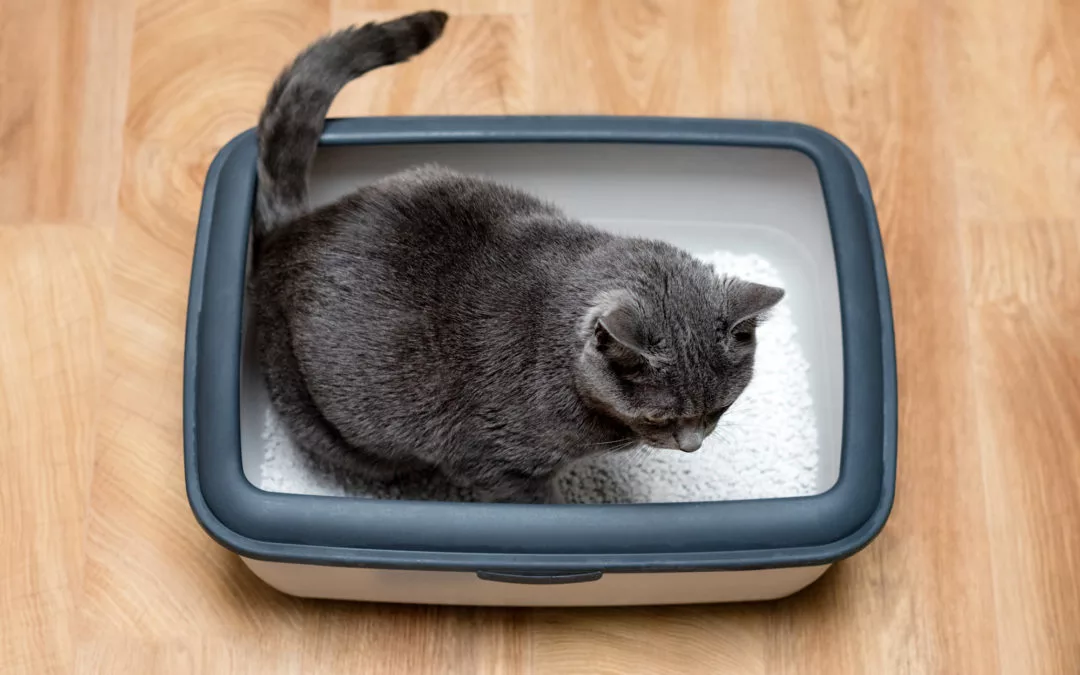
How Do I Know If My Cat Is Constipated?
The first obvious sign of cat constipation is a cat that hasn’t pooped in a day or more. This isn’t normal for cats, but you might not notice it right away.
Has your cat been circling anxiously more often than before? What about pacing or whining for no good reason you can see?
Has the cats been dragging her bottom across the floor, or have you seen more ‘squats’ with no results?
When your cat is able to eliminate, will he cry out or show signs of unusual discomfort? Are the droppings themselves very hard and dry?
Constipated cats will often see a decrease in appetite. You might notice sporadic vomiting.
Causes Of Constipation In Cats
There are several things that may cause a lack of pooping in cats. Some are more serious than others and several can be fixed easily.
- Hair (ingested when self-grooming), bones or pieces of, eaten
- Pieces of toys (i.e. tennis ball) or anything other objects hard to eliminate eaten
- Too much dirt or gravel ingested
- Side effects of medications
- Dehydration
- Some kind of obstruction either in or outside the colon
- Metabolic, endocrine, or neurologic disorders
- Enlarge or swollen prostate in male cats
- Pain when crouching (caused by anything) discouraging the cat from eliminating
- Poor appetite, not eating
- Old age
Some cats poop after every meal, but the general frequency should be based on the frequency of meals.
Cat Not Pooping After Eating
It isn’t a huge problem if your cat goes for a day without pooping (especially if he missed a meal), but you should definitely start paying attention at this point.
After 48-72 hours without a bowel movement, your cat could be coping with something serious and it is definitely time to contact the vet.
Unless you speak to them directly and not just the technician that answers your call, you can’t wait for an appointment and this needs to be looked at today.
Cat constipation should be concerning because the little ones are especially vulnerable to a number of things.
If your cat is very young (first few months of age), her little body is more susceptible to pretty much anything an adult cat could suffer, while her immune system may not yet be strong enough to cope.
Does your cat have enough time during walks or when outside? If the cat is too young to be potty trained yet, he’ll do her business anywhere convenient.
Is your cat coping with a stressful environment? When raising a young cat, you want the environment he lives in to be as stress-free and enjoyable as possible.
Longer constipation is normally accompanied by a lack of appetite, so it’s a good sign your cat is still eating.
A fecalith, or mat of fecal matter and hair covering the rectum, can act as sort of a ‘glued barrier’ to prevent a cat from pooping.
These are more common in long-haired cats, and the area should be trimmed regularly when your cat is groomed.
Is Your Cat Dehydrated?
Dehydration can make it more difficult for a kitten (or any cat) to poop.
Because kittens have a smaller circulatory volume in their little bodies, the same fluid loss an adult might experience can be much worse for a cat.
For example, even a flea infestation can cause a young kitten to lose too much fluid, where the same number of fleas would pose little more than an irritation for adult cats.
If your cat is not so keen to drink enough water throughout the day, you can actually trick her into drinking more water with these tips.
Your cat might not have finished her or her series of vaccinations. This puts the cat at greater risk for the same conditions an adult would be immune to.
At the same time, diarrhea can also be pretty serious in kittens.
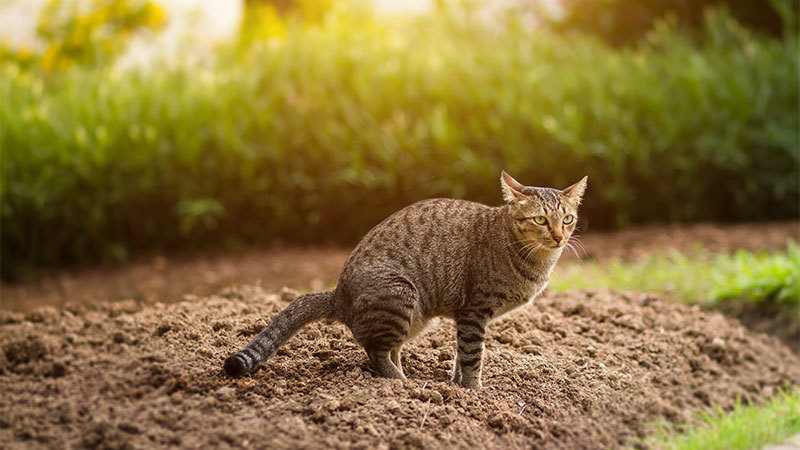
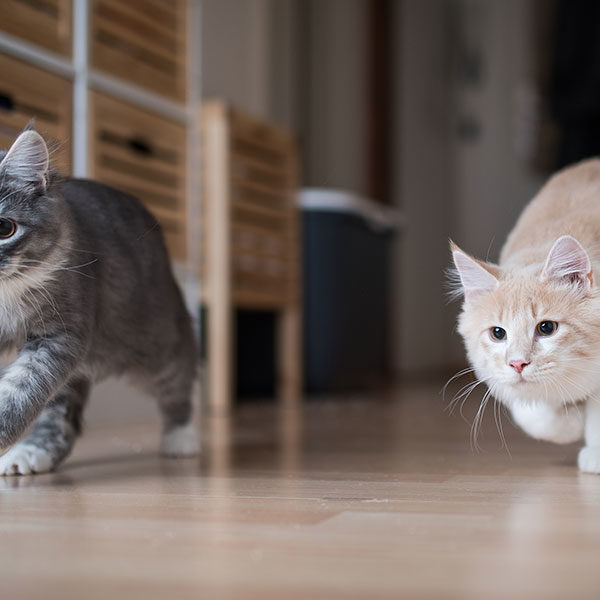
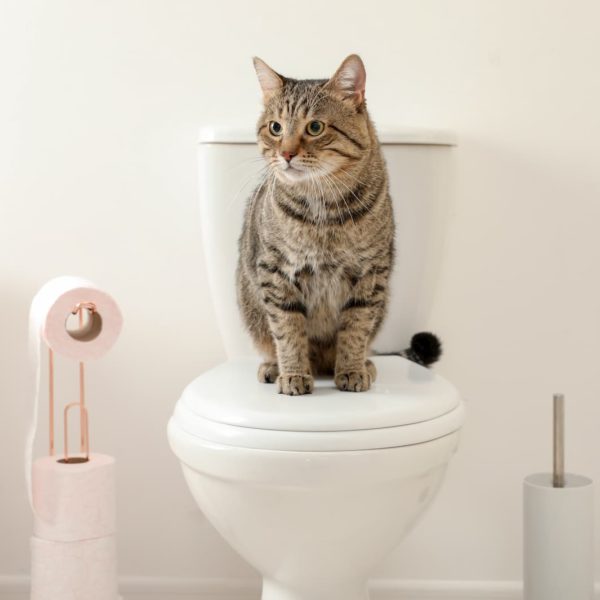
Leave a Comment